旅人攝影藝廊
旅行印度各地,我從他們的雙手看見深刻卻沈默的生命故事
vonlin /
翻譯 / 印度尤
人類的雙手是身體具有表達能力的一個部分。有著最緊密的神經末梢和最豐富的觸覺反饋,我們的雙手能夠做出最精細的動作並分辨不同的知覺,它是接收知覺最直接的來源,在我們的肢體語言中也扮演著不可或缺的角色。任何細節都無法在雙手中隱藏,性別、年齡、職業、社會地位、文化禮儀、生活條件、健康狀況乃至於情感,不必言說,那雙手便說完了全部的故事。
Human hands are one of the most expressive parts of the body. Hands contain some of the densest nerve endings and richest sources of tactile feedback for precise manual manipulation and for differentiating sensations. It is a direct tool of our consciousness and plays an important function in body language. One can tell a lot from a pair of hands such as gender, age, profession, social status, cultural etiquette, living conditions, health conditions and affection.
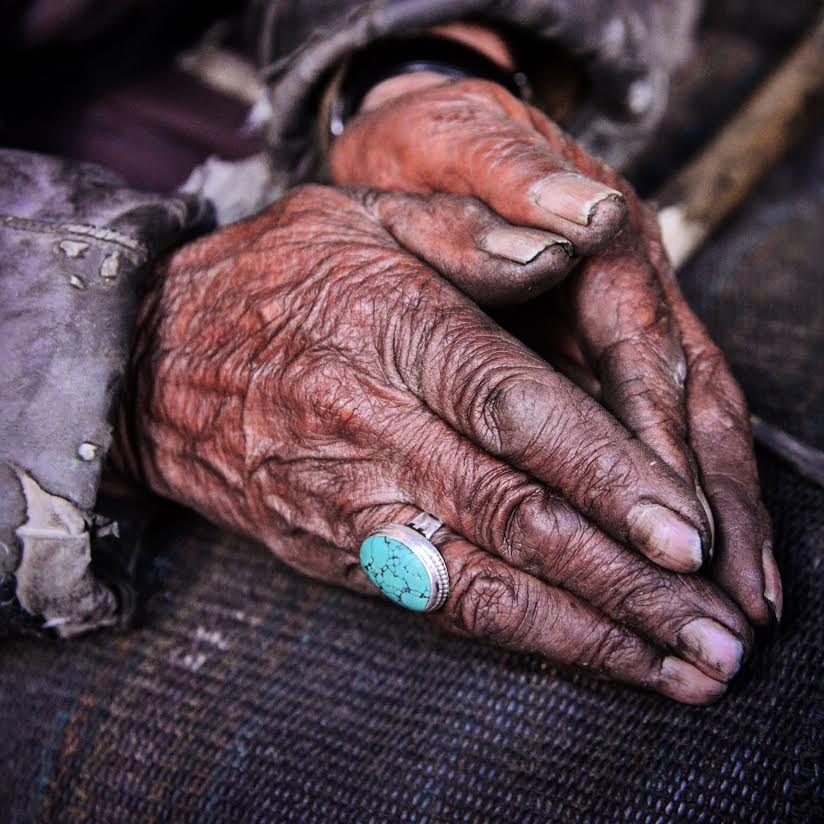
拉達克一名珠寶商人的手,拍攝於印度的拉達克地區。
A pair of hands of a jeweller in Ladakh, India.
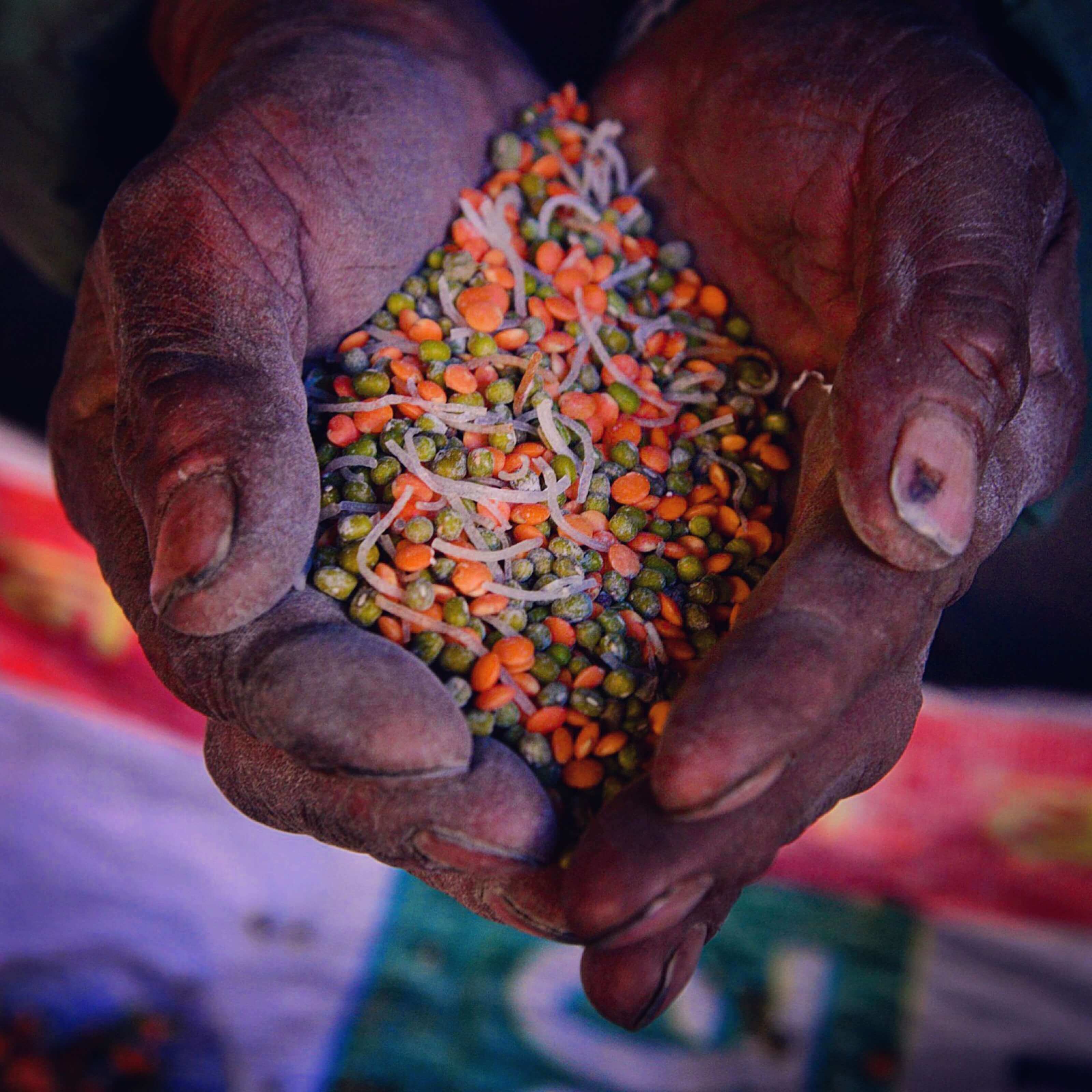
查謨-喀什米爾(Jammu and Kashmir)的藏斯卡(Zanskar)男人雙手捧著豆穀,他正在準備著餐點。偏遠的藏斯卡村莊的聯外道路在冬季時關閉,村民會行走在結凍的河上,也就是現在著名的觀光行程恰達(Chadar)冰川健行。村民在找到更大的村莊購買必需品之前,會有好幾天得睡在洞穴裡。
Hands of a Zanskari man holding raw daal and was about to prepare his meal. Roads to the remote Zanskar villages are closed during winter months and the villagers walk on frozen river (known as the Chadar frozen river trek) and sleep in caves for a few days until they get to a bigger village to buy supplies.
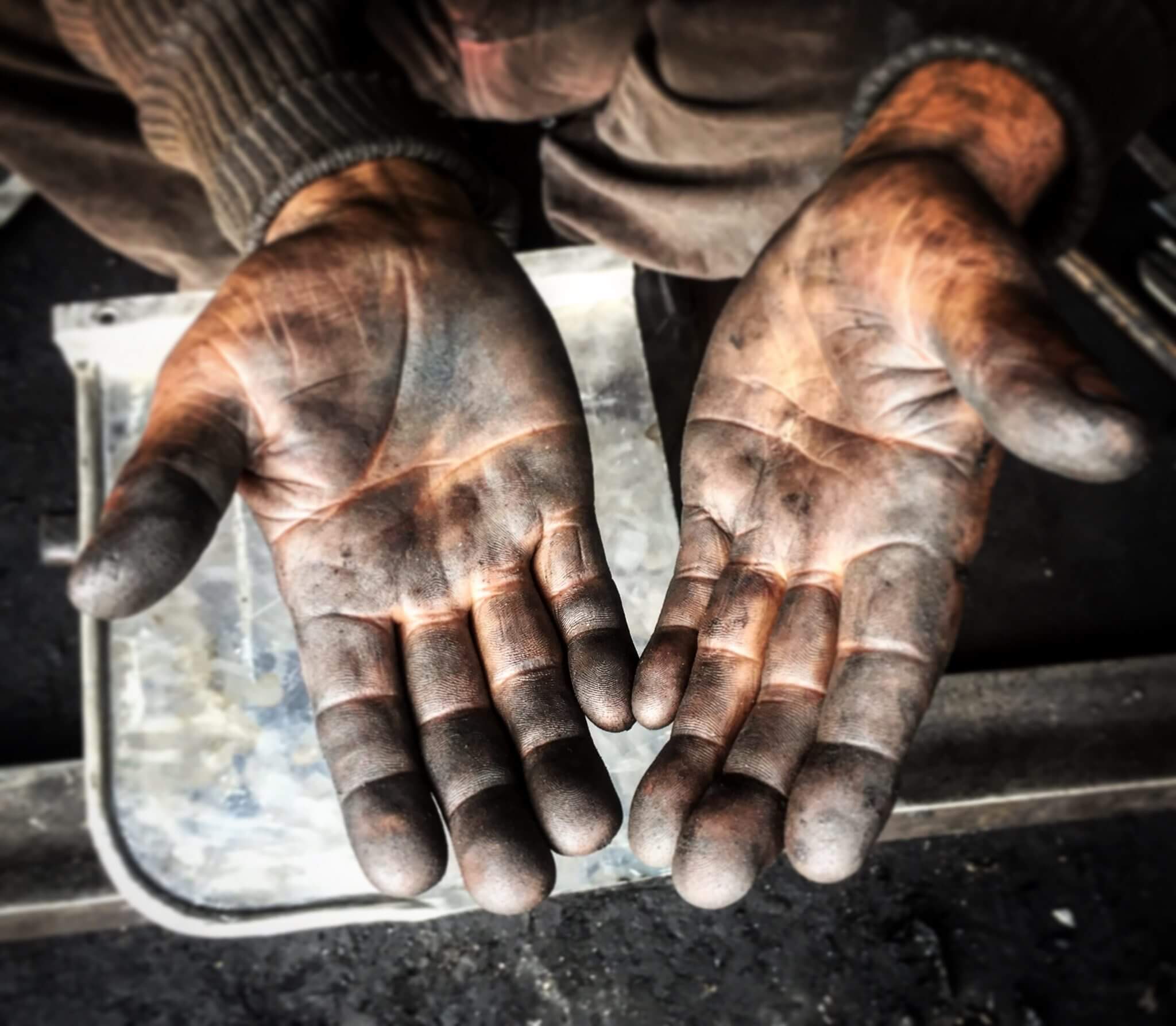
大吉嶺一名機械工人的雙手,印度。
Hands of a mechanic in Darjeeling, India
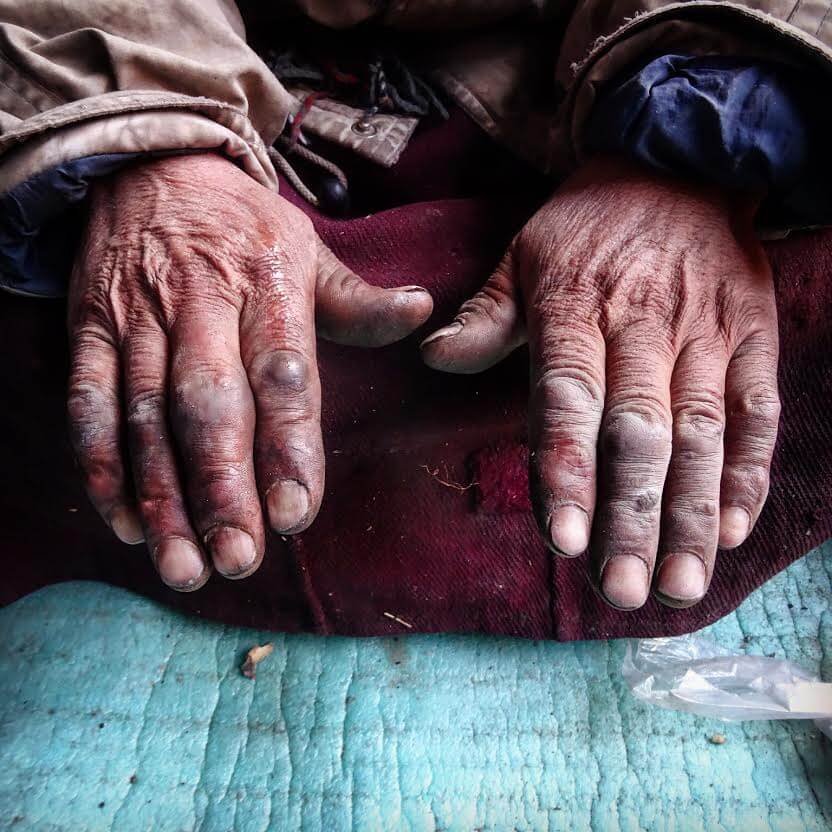
藏斯卡(Zanskar)男人的手。藏斯卡位於印度查謨-喀什米爾的東部偏遠地區,這裡的氣候以及生存環境極度困難。
Hands of a Zanskari man. Zanskar is located in the remote part of Eastern half of Indian state of Jammu and Kashmir, where the weather and living conditions are often very tough and challenging.
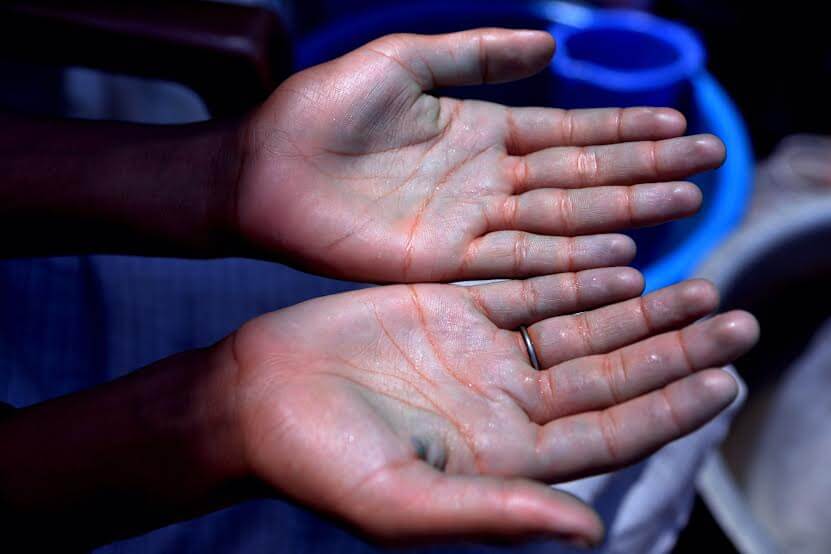
年輕的喀什米爾男孩浸泡藍色染料的雙手。
Hands of young Kashmiri boy who has been dying fabric with blue dye.
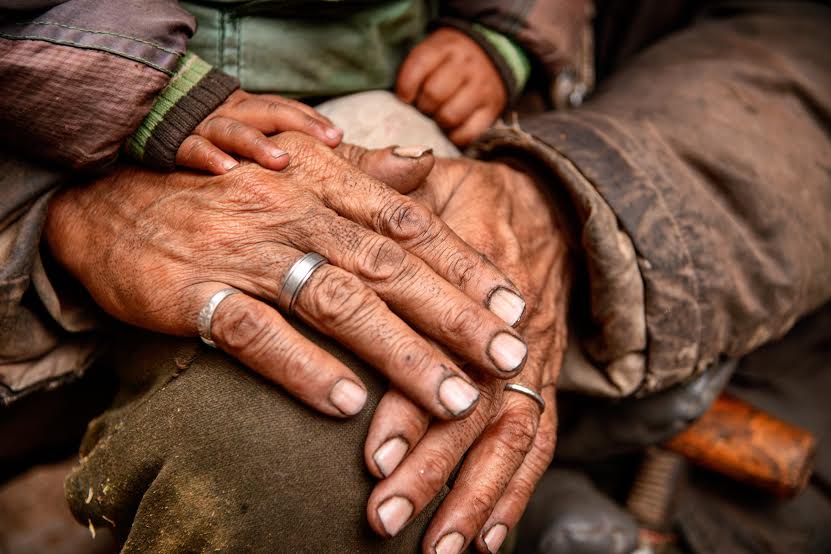
布洛帕(Brokpka)幼童和他的祖母,拍攝於印度列城(Leh)地區的小村莊達阿(Dha)。布洛帕族人據傳是從巴基斯坦的齊拉斯(Chilas)和吉爾吉特(Gilgit )穿越邊界來到印度。根據當地的傳說,他們是亞歷山大大帝東征印度失利時,遺留在印度士兵的後代,世代內婚又被視為「純種的雅利安人」。
Hands of a Brokpa toddler and his grandfather in Dha, Leh district of india. The Brokpa people are said to have originally form Chilas and Gilgit (across the border form Pakistan) and claims to be descendent from Alexander the Great’s army.
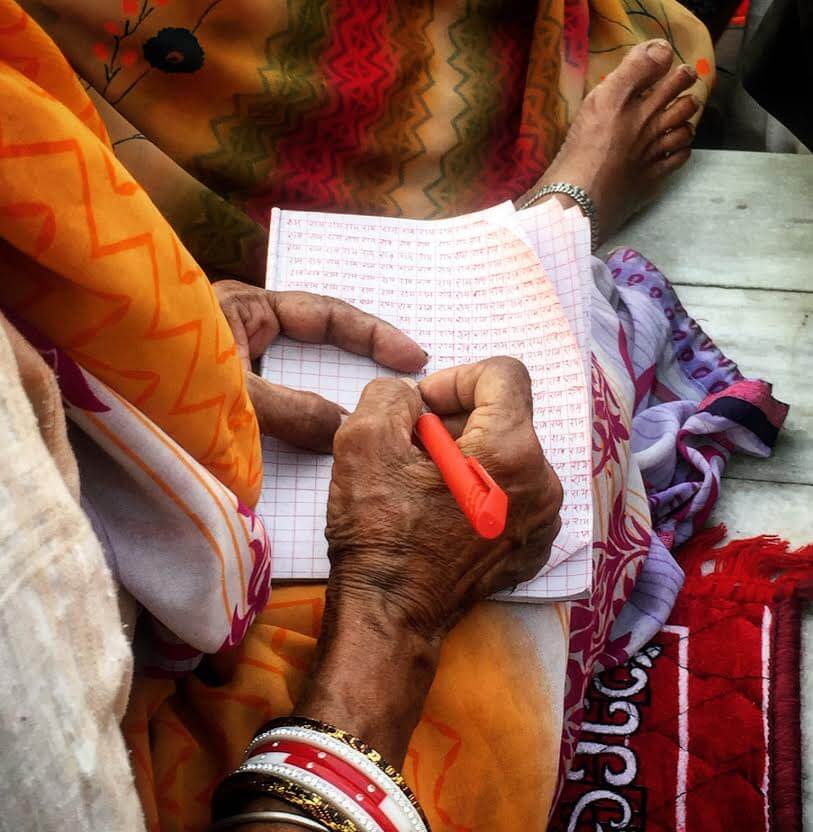
在恆河流經的聖城赫爾德瓦爾(Haridwar)舉行的祭祀活動中,一個虔誠的女人一一寫下印度教神祇的名字。
A lady writing out the name of an Hindu god repetitively during the Aarti ceremony by the Ganges river in Haridwar, India.
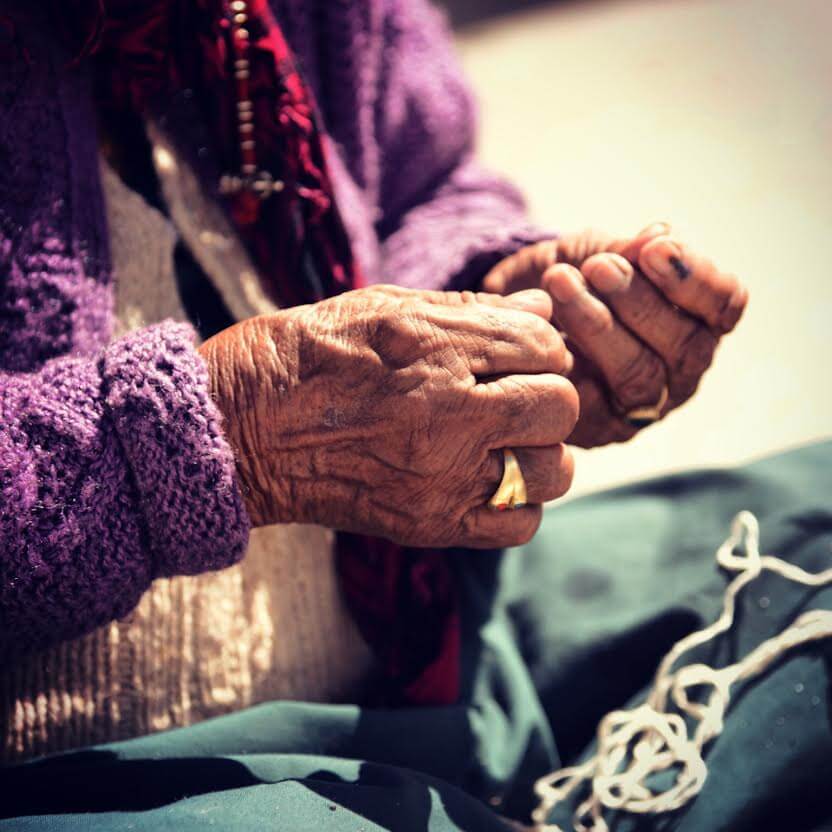
一名藏人婦女正準備著酥油燈所需的燈芯,拍攝於印度斯碧堤山谷(Spiti valley)卡扎(Kaza)地區的一座寺院中。
Hands of a Tibetan lady preparing the wick for butter lamp for the monastery in Kaza, Spiti valley, India.
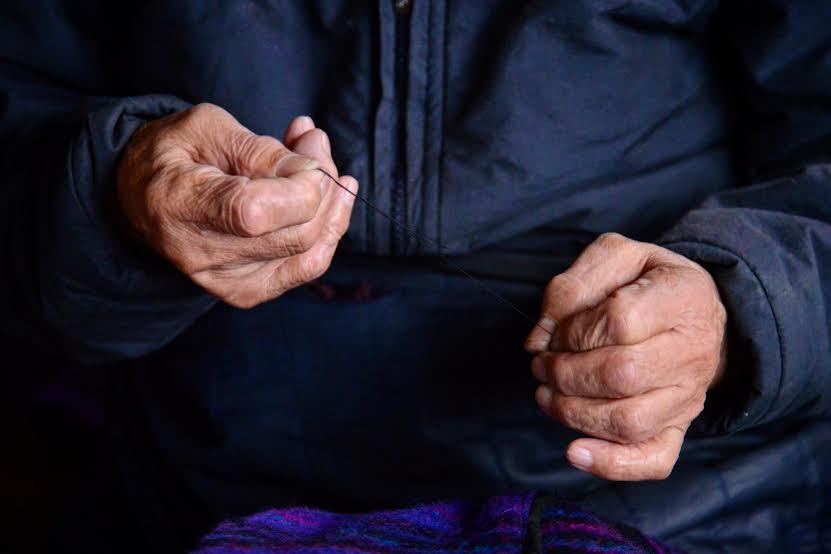
這是一雙男裁縫師的手。他是在中國文化大革命期間從西藏逃離的難民之一,數十年來,他都住在大吉嶺的西藏難民自助中心、從事裁縫工作。
Hands of a male tailor. He is one of the refugees escaping from Tibet during the Cultural Revolution and has been living and working in the Darjeeling Tibetan self help centre as a tailor for the last couple of decades.
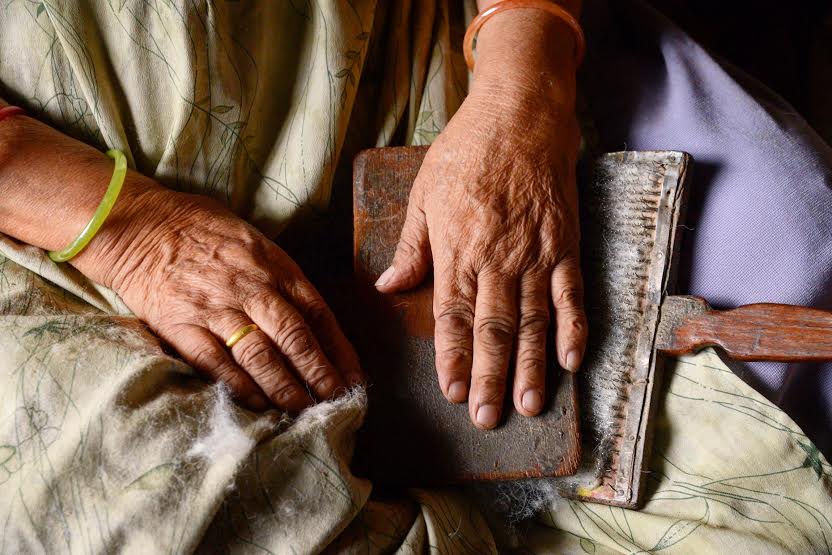
一個織布女人的手。拍攝於大吉嶺西藏難民自助中心。
Hands of a lady who is working as a weaver in the Tibetan refugee self help centre in Darjeeling, India.
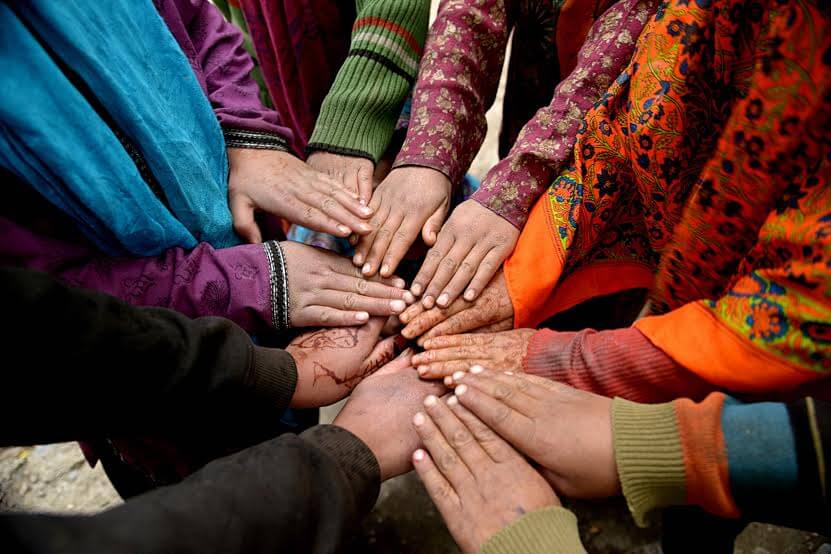
年輕的巴爾蒂斯坦(Baltistan)女孩的手。有些女孩在前幾天參加了一場婚禮,所以手上全畫滿了指甲花顏料繪製的圖騰(Henna)。照片拍攝於印度北部的最後一個村莊 Turtuk(Leh)地區的多圖(Turtuk)村莊,查謨-喀什米爾。
Hands of a number of young Baltistan girls. Some of the girls attended a wedding a few days prior, hence their hands are decorated with henna. Images taken in Turtuk village, in the Leh district of Jammu and Kashmir state of India.
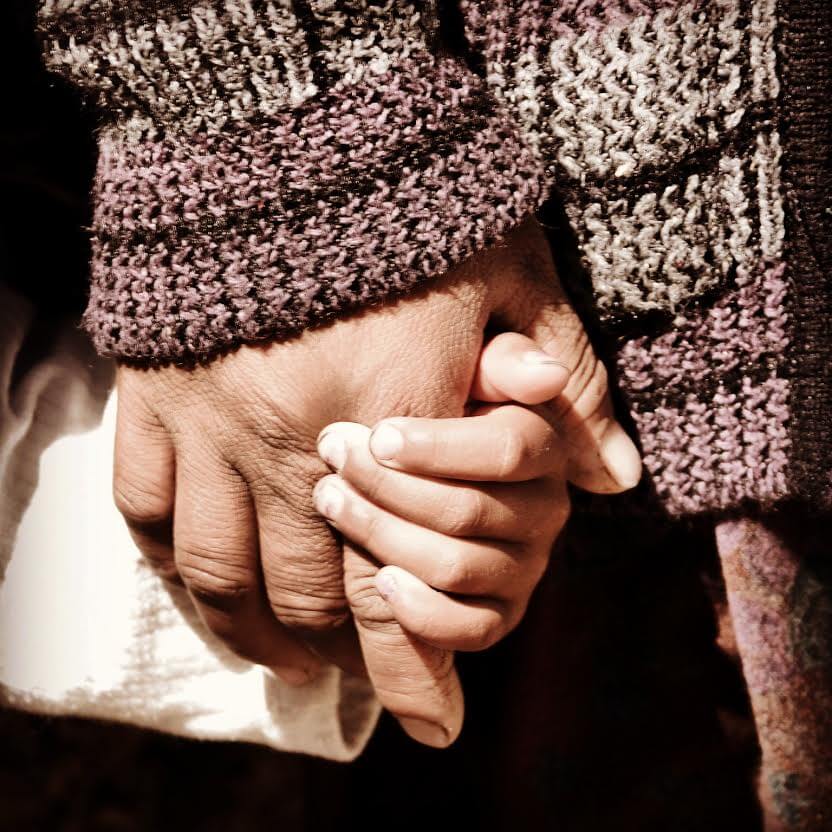
母與女。拍攝於印度斯碧堤山谷(Spiti valley)卡扎(Kaza)地區。
Mother and daughter. Image taken in Kaza, Spiti valley, India
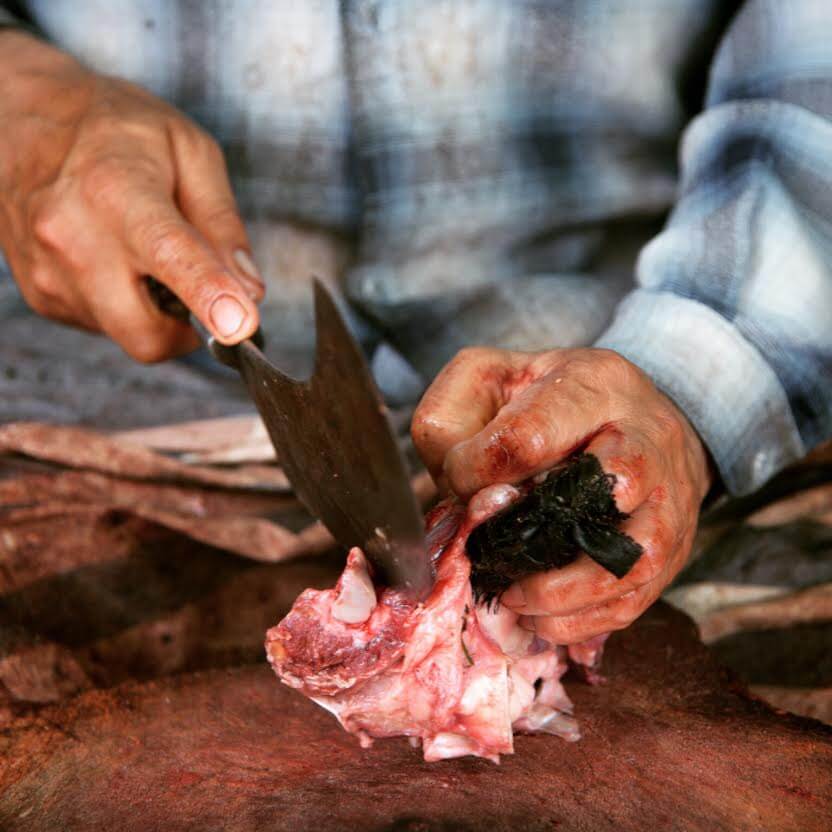
當地屠夫的手。拍攝於喀什米爾的斯里納加(Srinagar)。
Hands of a local buctcher in Srinagar, Kashmir, India.
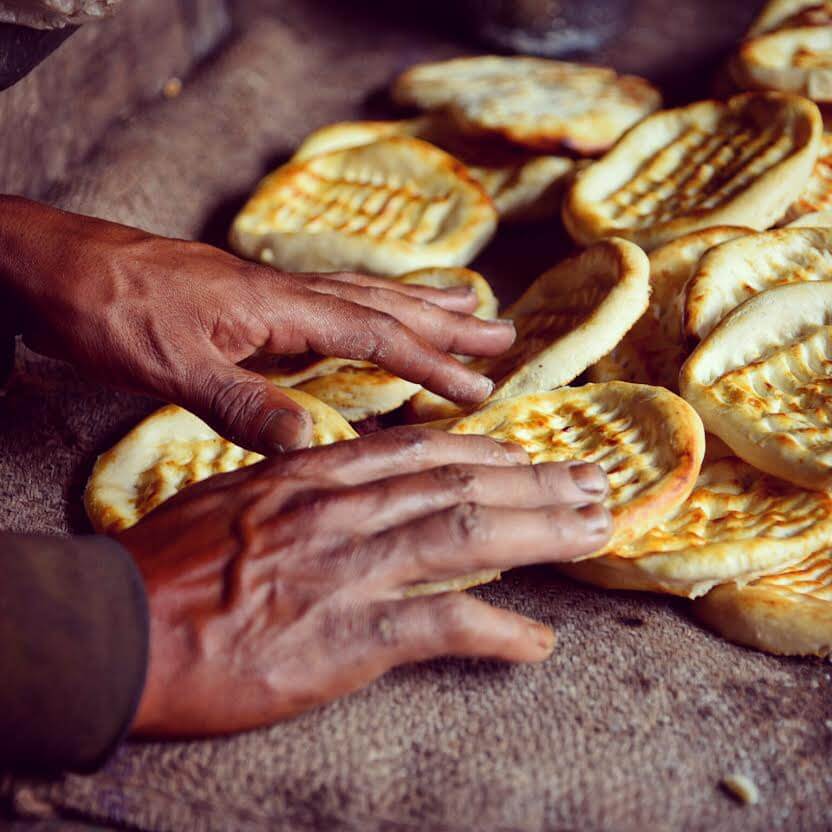
製作印度饢餅(Naan)的手。拍攝於喀什米爾的帕哈岡(Pahalgam)地區。
Hands of a naan maker in Pahalgam, Kashmir, India.
行走在印度各地,每一雙手都訴說著一個生命故事,深刻、沈默卻無所遁藏。